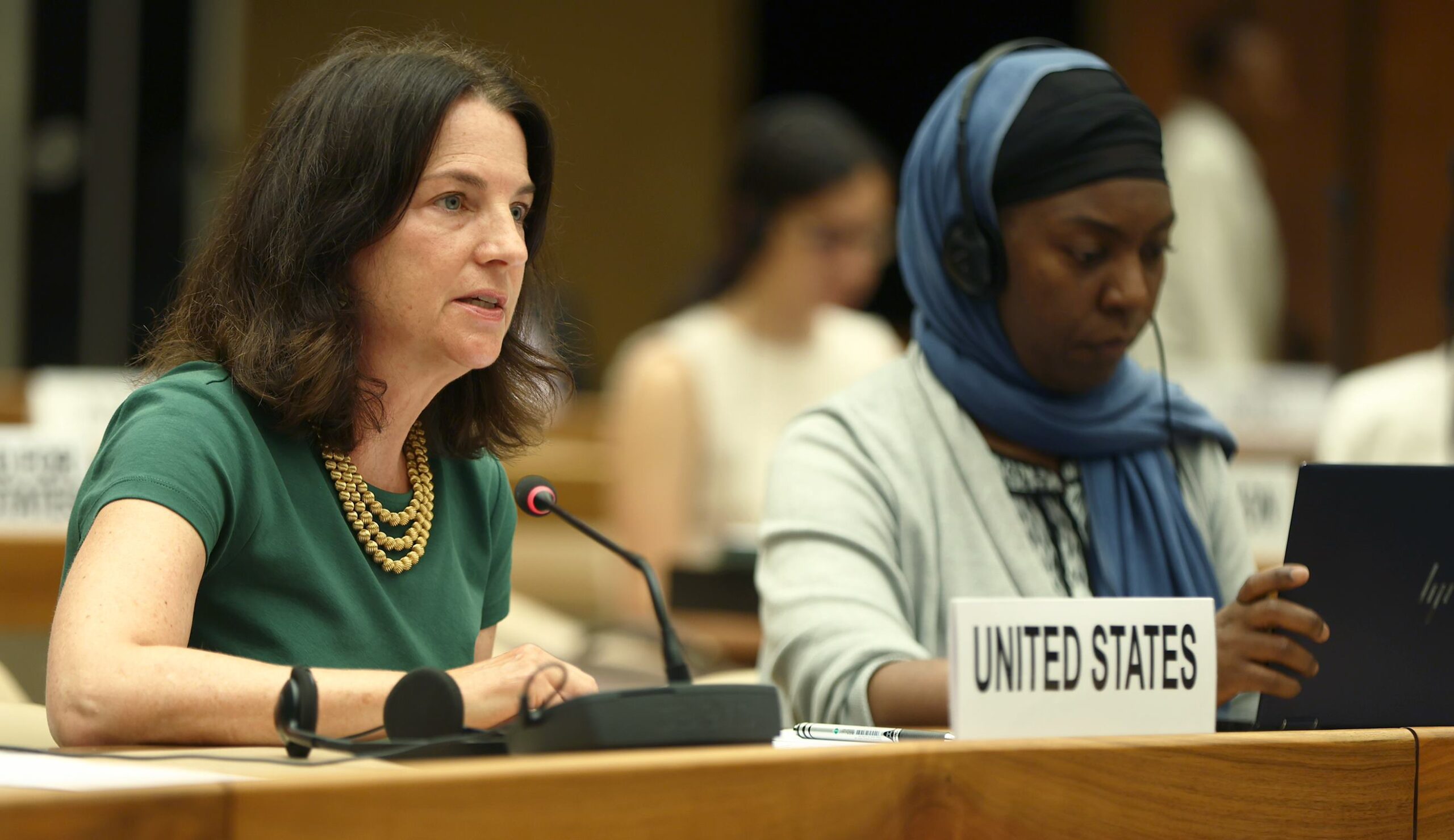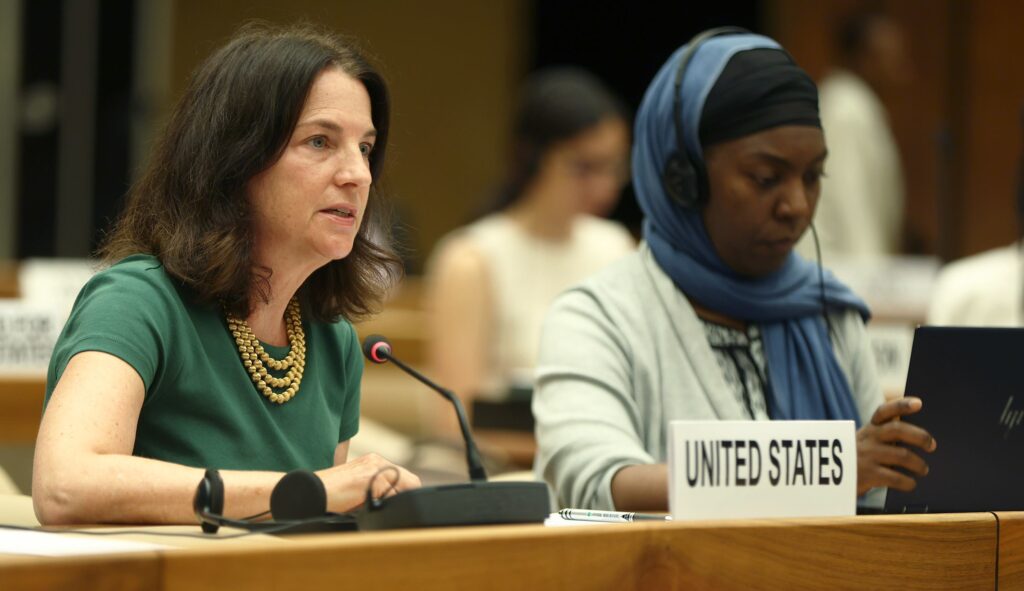 (AGENPARL) - Roma, 21 Giugno 2023
(AGENPARL) - Roma, 21 Giugno 2023(AGENPARL) – GENEVA mer 21 giugno 2023
U.S. Statement to the
Economic and Social Council’s Humanitarian Affairs Segment??
As delivered by Ambassador Bathsheba Crocker
Geneva, Switzerland
??
 Thank you, Mr. Chair.????
Thank you, Mr. Chair.????
The United States is pleased to participate in this year’s Humanitarian Affairs Segment of the Economic and Social Council.? We thank all the participants, but especially the co-facilitators Italy and Kenya, for their continued commitment and leadership in improving effective and efficient humanitarian assistance.? The work of the United Nations, and other international organizations, NGOs, and other humanitarian organizations is vital to reaching the most vulnerable people.????
Conflict remains the main driver of humanitarian needs.? Violence continues to force people to flee their homes, deny them access to sufficient food, and rob them of their means to make a living.? The ramifications of conflict are even more dire for women, girls, and children.? Gender-based violence, including rape and sexual assault, domestic and intimate-partner violence, and human trafficking increase due to the breakdown of the social fabric of communities, services, and norms that protect vulnerable populations.? The United States strongly condemns gender-based violence and stresses that acts involving such violence may be violations of international law.? We must unite in our collective action to address these violations and ensure humanitarian aid can reach survivors of gender-based violence.??
Likewise, the climate crisis requires better, more strategic thinking for the delivery of humanitarian assistance.? The ever-greater consequences of the crisis have driven millions into acute food insecurity with long, protracted droughts, and other natural disasters placing considerable strain on countries and communities around the globe.? The recent floods in Haiti and Pakistan, and the cyclone in Burma, have shown the destructive capabilities of the climate crisis and the need to build resilient systems.? The international community has a collective responsibility to contribute efficient, effective assistance to the affected populations—yet, more often than not, we have fallen short, not only with regard to humanitarian disasters brought on by climate change, but humanitarian crises across the board.??
The United States’ commitment to provide funding for humanitarian assistance is deeply rooted in the most essential of American beliefs: that we have a responsibility to help others in need when we are able.? In our Fiscal Year 2022, the United States provided more than $17 billion globally in humanitarian assistance.? This assistance has proven crucial in delivering lifesaving assistance in protracted and rapid onset humanitarian emergencies, including to the refugees fleeing the conflict in Sudan and responding to drought-affected populations in the Horn of Africa.? The United States has also supported provision of food, water, shelter, sanitation, and other critical supplies to those devastated by natural disasters like with the recent earthquake in Türkiye and Syria.? Our generous support is a reflection of our solidarity with oppressed and displaced people globally, responding to man-made and conflict-driven crises in countries like Burma, where 1.8 million people, including the Rohingya, have been displaced.? And of course, we continue to provide humanitarian assistance to the victims of Russia’s illegal war against Ukraine, and to address the broader, global implications of Russia’s continued aggression. ?
As long as need remains, the United States will continue to provide support for vulnerable populations, both diplomatic and financial. But we have to acknowledge that addressing need is not only a matter of funding. We need to invigorate compliance with international humanitarian law and collective efforts to bring an end to conflicts. ???
Across the world, more than 330 million people require humanitarian assistance.? Yet, we have seen efforts to impede the work of humanitarians to deliver critical aid to these people.? We condemn the continued attacks on humanitarian workers and the destruction of their facilities, vehicles, and supplies.? These attacks are unacceptable and are costing lives.? We reiterate that parties to conflict must adhere to their international humanitarian law obligations and stress that it is essential that humanitarian actors are able to operate without concern for their own safety.? ?
We thank you for this opportunity to speak, and we request that this statement be made part of the official record of this meeting.? Thank you, Chair.
###
The post U.S. Statement to the Economic and Social Council’s Humanitarian Affairs Segment?? appeared first on U.S. Mission to International Organizations in Geneva.
Fonte/Source: https://geneva.usmission.gov/2023/06/21/u-s-statement-to-the-economic-and-social-councils-humanitarian-affairs-segment-2023/

